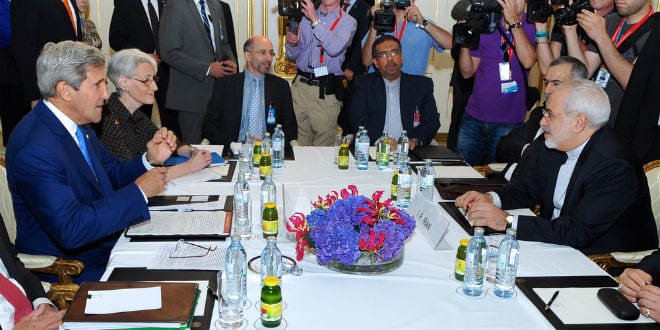Various individuals involved in the nuclear negotiations currently underway between Iran and the P5+1 countries have expressed skepticism that the situation will be resolved by the November 24 deadline. The talks, taking place in Vienna, aim to limit Iranian nuclear development in exchange for a reduction in the crippling economic sanctions leveled against the belligerent country.
Haaretz reported earlier this week that US Secretary of State John Kerry called Israeli Prime Minister Benjamin Netanyahu Monday to warn him of the talks, which began Tuesday. Netanyahu has expressed his concern that a bad deal is worse than no deal at all. Senior US officials said at the time, “it will be tough, but it’s possible” to reach a deal by the deadline.
Now, several days in, however, some in the know are less confident. British Foreign Secretary Philip Hammond said as much on Wednesday. “I’m not optimistic that we can get everything done by Monday,” Ynetnews reported Hammond’s words to reporters, “but I think if we make some significant movement we may be able to find a way of extending the deadline to allow us to get to the final deal if we’re making a good progress in the right direction.”
In words that echo Israel’s position, Hammond continued, “We do very much want to see a deal done with Iran, but we don’t want to do a bad deal. Better…no deal than a bad deal.
“The right deal with Iran has to be one which gives us the assurance we need that Iran’s programme is exclusively targeted at civil nuclear use, has no military dimension at all and where Iran’s enriched capacity is limited to a level which does not present any military threat,” he said.
U.S. Deputy National Security Adviser Tony Blinken told Reuters much the same thing. “Right now, I think it’s going to be difficult to get to where we want to go.
“[Reaching a deal] depends entirely on whether Iran is willing to take the steps it must take to convince us, to convince our partners, that its program would be for entirely peaceful purposes,” he said. “As we speak, we’re not there.”
Earlier this week, David Albright, a former UN weapons inspector, laid out some of the large gaps that still need to be bridged between the sides. He listed the lack of progress in opening up Iran’s military sites, disagreements on the number of uranium centrifuges Iran should be allowed to maintain and the country’s ongoing lack of transparency on all military aspects of its nuclear program as the main stumbling blocks in the way of an accord.



